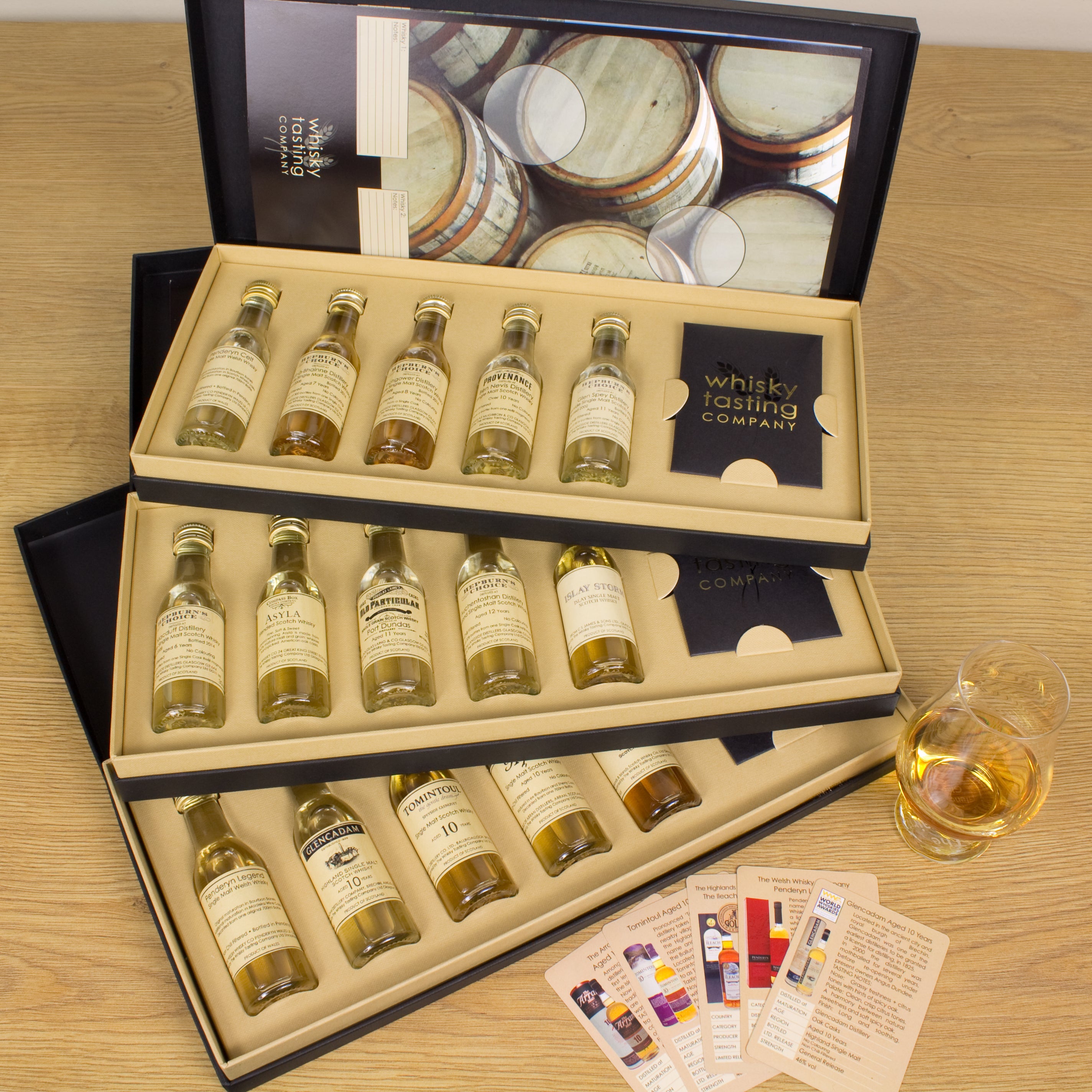Spirit vs Liqueur: What's the Difference?
Do you often find yourself browsing the drinks aisle, struggling to differentiate between a spirit and a liqueur? If so, this blog is for you.
While they’re both very popular in their own right, spirits and liqueurs are often mistaken for each other or grouped together. Whether you’re a whisky enthusiast or just getting into the world of whisky, knowing the difference can positively impact your tasting experience.
Stick with us to discover the key differences between the two so you can impress all of your guests when they visit.
Understanding Spirits
Spirits are a popular staple in the alcoholic world, known for their strong flavours and higher alcohol content.
Unlike beer or wine, spirits are distilled rather than brewed or fermented. This is what gives them their higher alcohol by volume (ABV), which typically ranges from 40% to 50%.
Spirits are distilled by fermenting grains, fruits, and vegetables. This process involves heating the fermented liquid to separate the alcohol from the water and other components.
Popular Types of Spirits
- Wine
- Beer
- Gin
- Vodka
- Rum
What Makes a Liqueur?
A liqueur falls into a diverse category of alcoholic beverages.
These are made by infusing a base spirit with various flavourings and sweeteners, resulting in intense flavours. This ranges from fruity and floral to herbal and creamy, offering something for every palate.
Unlike spirits, liqueurs typically have a lower alcohol by volume (ABV), often between 15% and 30%, making them a less potent drink.
Anything from whisky to vodka, rum, brandy, or even neutral grain alcohol can be used as the base spirit. Following distillation, this base is mixed with sugar or syrup and a variety of artificial or natural flavourings
Popular Types of Liqueur
- Amaretto
- Irish cream
- Kahlúa
- Chartreuse
- Grand Marnier and Cointreau
The Key Differences Between Spirits and Liqueurs
Spirit and liqueur are differentiated by their taste, production, and usage.
The key differences include:
1. Taste Profile and Flavour Complexity
Spirits are distinguished by their powerful, robust tastes, which are frequently formed by the distillation process, any ageing that occurs, and the base components (such as grains, fruits, or sugarcane).
Spirits usually have a more "pure" flavour, highlighting the natural essence of their ingredients.
On the other hand, liqueurs are distinguished by their sweetness and the wide variety of flavours that can be added, such as fruits, nuts, spices, herbs, and even flowers. Due to their smooth and sweet profile, they are used to give cocktails a distinctive touch or as a tasty digestif.
2. Production Processes
Spirit production involves distilling a fermented base, such as grain, fruit, or sugarcane, to concentrate the alcohol and flavours.
Certain spirits, such as rum, whisky, and some varieties of tequila, are aged in wooden barrels to gradually acquire more complex and nuanced tastes.
In contrast, liqueurs start with a base spirit but then go through additional processes of infusion, maceration, or distillation with added ingredients to incorporate new flavours. Sweeteners, such as sugar or syrup, are then added to balance the taste and modify the ABV.
3. Use and Versatility
Spirits are often enjoyed neat, on the rocks, or as the main ingredient in classic cocktails.
A well-crafted spirit, such as a fine single-malt whisky or a premium gin, is often savoured for its complexity. Spirits serve as the backbone of cocktails, providing the necessary kick and depth in cocktails like the Old Fashioned or Negroni.
Liqueurs, with their lower ABV and wide range of flavours, are incredibly versatile in cocktail making. They can serve as a base in low-alcohol cocktails or as a modifier that adds sweetness, colour, and a specific flavour profile to a drink.
They’re also popular for sipping on their own.
4. Role in Tasting and Pairing
Spirits' high proof and complex flavour profiles make them excellent candidates for food pairing. Smoky whisky pairs well with rich meats or strong cheeses, while spicy rye whisky complements dishes with bold, hearty flavours.
On the other hand, liqueurs are often used to complement desserts or as a sweet contrast to savoury dishes. The sweetness and diverse flavour profiles of liqueurs like coffee, chocolate, or fruit can elevate a dessert course or provide a refreshing change after a heavy meal.
A coffee liqueur like Kahlúa pairs well with chocolate desserts, while an herbal liqueur like Chartreuse can add an intriguing twist to a cheeseboard.
Are you Ready to Explore More?
Why not take your passion for quality spirits to the next level?
At Whisky Tasting Company, we offer a curated selection of premium whiskies and other fine spirits, perfect for expanding your collection or discovering something new.
Browse our range today, and don’t forget to check out our tasting sets, ideal for both enthusiasts and those new to the world of whisky.






